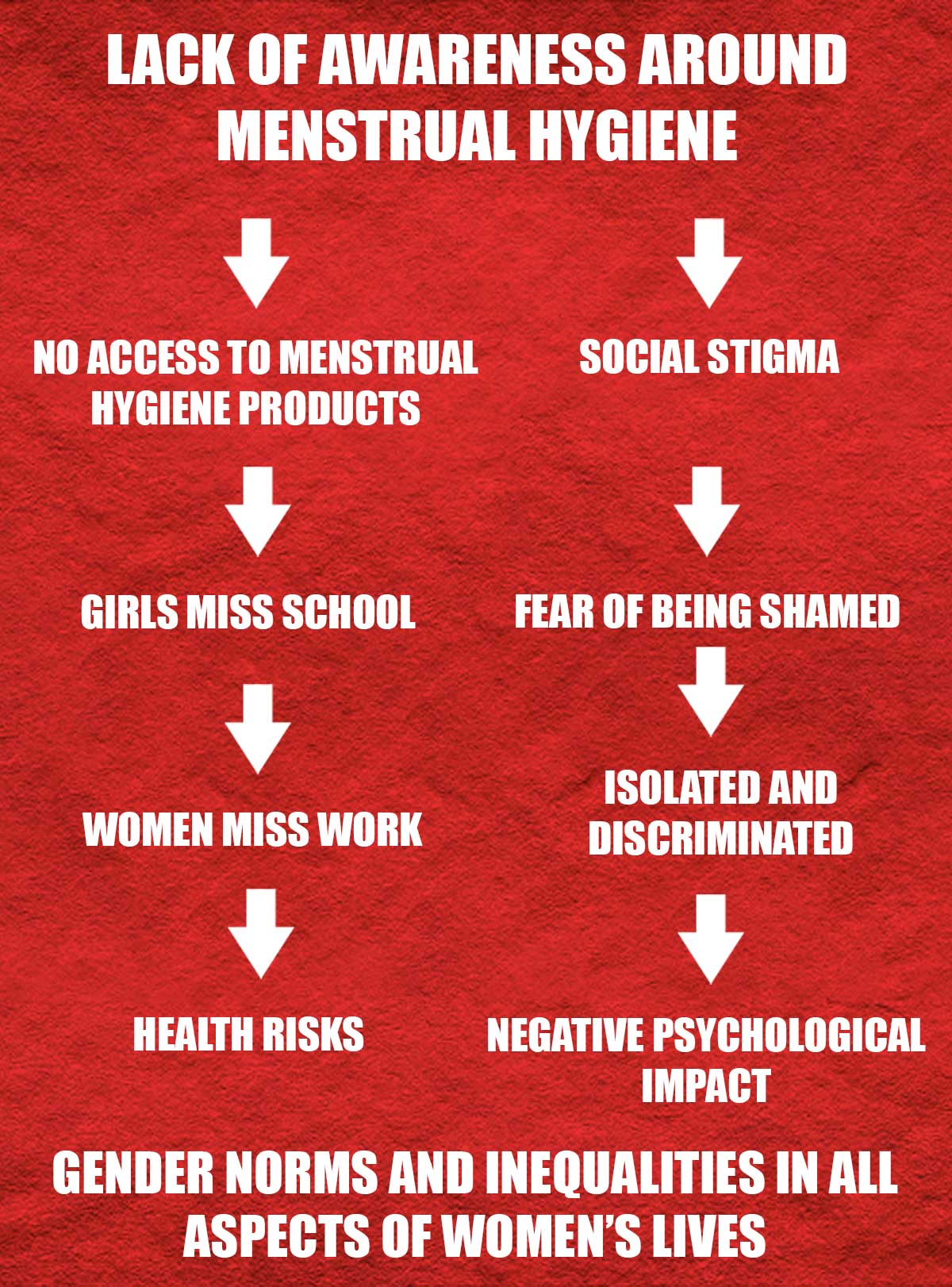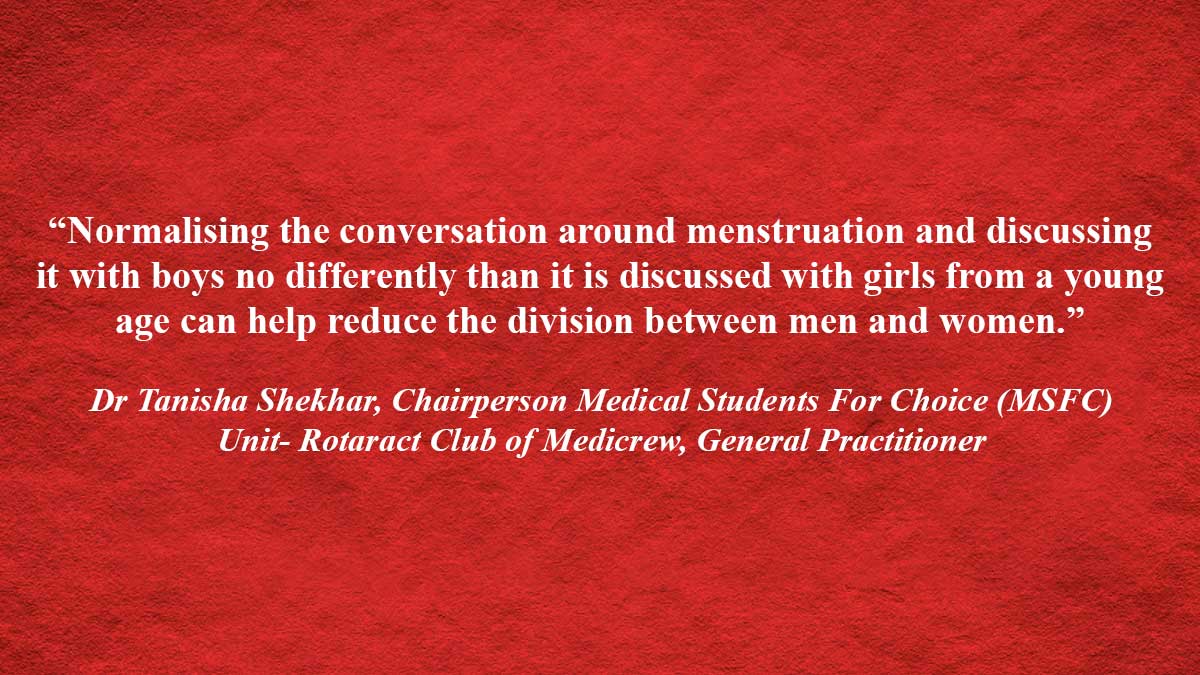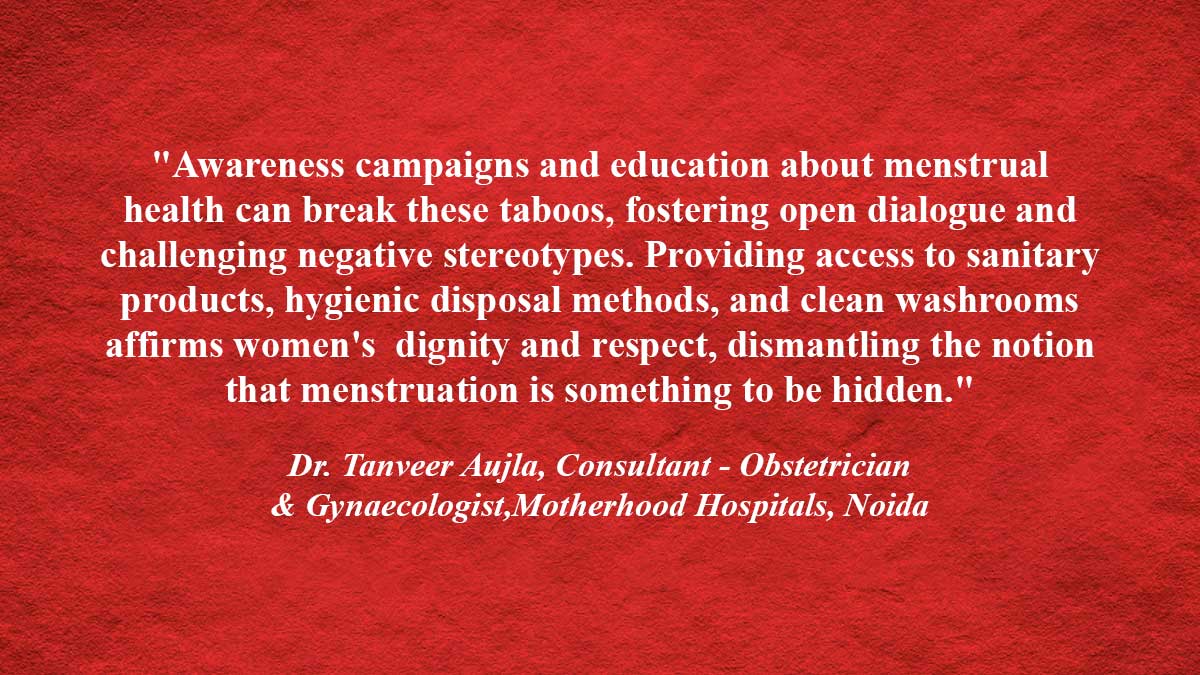
Picture this: A girl in a remote village skips school because she's on her period and has zero access to menstrual products or sanitation facilities. Then there's a woman in a bustling city, sneaking into a pharmacy to grab sanitary pads, hiding them in a black bag, and rushing to her room because heaven forbid her family finds out she's menstruating. Every time a woman begins menstruating, the next five days are all about wrestling with the world, leading life the way she'd rather not but is left with no choice. Why? Ignorance! And interestingly, it’s not just a women's league; everyone around them is on the team too.
Just the other day, we were shooting a video on menstrual hygiene products at our office and decided to have some fun with a period quiz with some men in our office. The intention was to understand how much they knew about menstruation and hygiene products. The results were eye-opening! Most had no clue about most menstrual hygiene products, and even less about why women have periods every month. For the longest time, most of them thought periods were something shameful, and that talking about them would embarrass women around them. One of them admitted that for years, he thought it was necessary to carry sanitary napkins in a black bag because carrying them in the open was unacceptable in society.
What was truly concerning was the lack of effort anyone made to ask about menstrual hygiene products used during our shoot — what they are, how they are used, and the impact of not using them on a woman's life or why their proper disposal made a difference? The lack of concern seemed to stem from the misconception that menstrual hygiene products only affect women. It’s the lack of effort that concerned me really and that is one of the biggest barriers for us today.
Why is using menstrual hygiene products is only a woman's concern and not a man's? While on the other hand, it suddenly becomes everyone's business when a girl utters the word "periods" in front of a male family member or accidentally stains a bedsheet.
Why are women continually at the end of the stick for something as natural as breathing? Women are still labelled 'impure' or 'less capable due to PMS' during that time of the month. Ever thought about why these misconceptions persist? Well, did we ever really make enough effort to change the social narrative? Nay!
Due to their parents’ lack of awareness about menstrual hygiene, many girls continue to follow unsafe practices like using a piece of cloth or leaves instead of sanitary pads. These girls are at the risk of catching an infection that disrupts their schooling and eventually forces them to quit. This leads to a life they never wanted: uneducated, possibly married at a young age, and deprived of equal opportunities in a world full of them. Women at workplaces, on the other hand, fear being shamed for something as trivial as a blood stain on their trousers since the menstrual cycle can be further linked to their professional capabilities.
None, unfortunately, tries to figure out the WHYs here. It all boils down to the lack of education about menstruation, menstrual hygiene, and the cultural taboos that have existed in India for generations.
Dropping out of school not only takes away future opportunities from these girls but also shatters their hopes of employment and financial independence. Moreover, the discontination of education due to menstrual hygiene-related issues perpetuates gender inequality.

Lack of menstrual hygiene products put women at the risk of infections, prompts them to leave school or employment, and ultimately deepens inequality.
Dr Tanisha Shekhar, Chairperson of Medical Students For Choice (MSFC) Unit- Rotaract Club of Medicrew, General Practitioner said, “Normalising the conversation around menstruation and discussing it with boys no differently than it is discussed with girls from a young age can help reduce the division between men and women. Awareness and education reduce stigma and that’s what we must focus on as women nowadays are proudly taking on all kinds of roles in the world. Instead of pointing out the things that women can’t do because of their periods, we as a society can do more to ensure that women can maintain hygiene while menstruating. From hiring more staff to keep public toilets clean, to encouraging women to explore the different menstrual hygiene products available today, there’s a lot that can be done to foster a more inclusive mindset.”
Dr Shekhar further highlighted how unawareness about menstrual hygiene products such as sanitary pads can lead to health issues among women. She stressed, “Many people are still unaware that wearing a sanitary pad for too long can predispose women to bacterial and fungal infections, which the body is especially susceptible to during one’s period. Due to the lack of hygienic public washrooms, many women don’t change their tampons or pads frequently enough resulting in dangerous and life-threatening conditions such as toxic shock syndrome. While products like menstrual cups are gaining popularity as it is cost-effective, eco-friendly, and easy to use without worrying about disposing it in public toilets, there is a learning curve that comes with maintaining proper hygiene while using it.”
Don't Miss: Menstrual Hygiene Day: 10 Google Queries Answered By The Gynaecologist

“Unfortunately, taboos and stereotypes surrounding menstruation often lead to misinformation, affecting women's participation in school, work, and social activities. Awareness around menstrual hygiene is the most important part that helps break these stereotypes, fostering an environment where women can openly discuss and manage their periods without stigma,” she concluded.
Dr. Tanveer Aujla, Consultant - Obstetrician & Gynaecologist, Motherhood Hospitals, Noida discussed how menstrual hygiene is fundamental to women's health and plays a pivotal role in promoting gender equality and challenging societal stereotypes. She said, “Inadequate menstrual hygiene management (MHM) can severely impact a girl's education, as many miss school due to a lack of sanitary products and facilities, leading to lower academic performance and higher dropout rates. Providing girls with menstrual products and private washrooms in schools is essential for uninterrupted education, a crucial step towards gender equality.”

Dr Aujla further shared possible plans to make it an equal and safe space for women to be when menstruating. “Awareness campaigns and education about menstrual health can break these taboos, fostering open dialogue and challenging negative stereotypes. Providing access to sanitary products, hygienic disposal methods, and clean washrooms affirms women's dignity and respect, dismantling the notion that menstruation is something to be hidden. Proper facilities, including washrooms with menstrual products and hygienic disposal bins, are essential for comfort and hygiene. Menstrual leave policies recognise the physical discomfort some women face, promoting a more understanding and equitable workplace. Addressing menstrual hygiene comprehensively is crucial for advancing gender equality and promoting a more inclusive society,” she concluded.
Don't Miss: Vedic Scriptures To Modern India, How Taboos Developed Around Menstruation In India
Our ignorance is only leading us towards a world that's unequal and unsafe for women. This Menstrual Hygiene Day, let's break the silence and openly discuss periods, hygiene, products, and everything in between. There is a dire need for this colossal stride for the betterment of womankind. Don't you think?
Also watch this video
Herzindagi video
Our aim is to provide accurate, safe and expert verified information through our articles and social media handles. The remedies, advice and tips mentioned here are for general information only. Please consult your expert before trying any kind of health, beauty, life hacks or astrology related tips. For any feedback or complaint, contact us at [email protected].